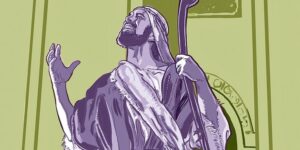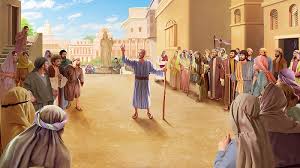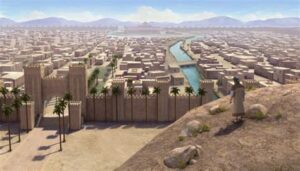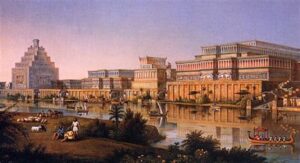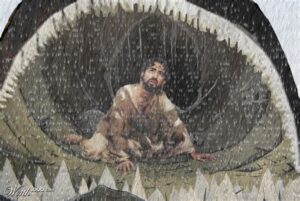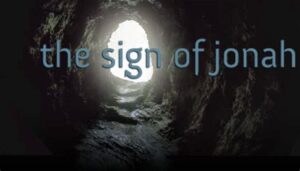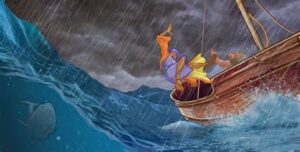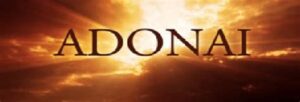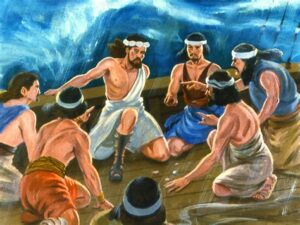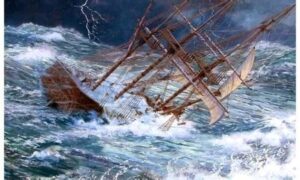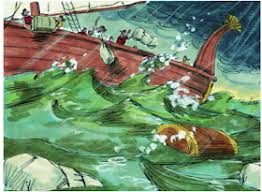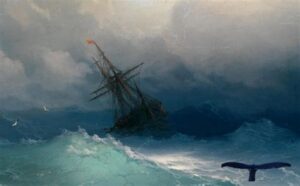Bb – End Notes
End Notes
Introduction to the Book of Jonah
- The Jewish New Testament Commentary, by David Stern, Jewish New Testament Publications, Inc, Clarksville, Maryland, 1992, page 4.
- The Bible Knowledge Commentary: Old Testament, by John Walvoord and John and Roy Zuck. The Victor Books, Wheaton, IL, 1986, pages 1461- 1462.
- The Remarkable Journey of Jonah, by Henry Morris, Master Books, Green Forest, AR, 2003, pages 17-18.
- The Book of Jonah: MBSO79, by Arnold Fruchtenbaum, Ariel Ministries, San Antonio, TX, 2005, page 18.
Jonah’s Authenticity and Historicity
- Jonah and Micah, by David Baker, TOTC, Intervarsity Press, Downers Grove, IL, 1988, page 81.
- The Bible Knowledge Commentary: Old Testament, by John Walvoord and John and Roy Zuck. The Victor Books, Wheaton, IL, 1986, pages 1463- 1464.
- The Minor Prophets, by Charles Feinberg, Moody Press, Chicago, IL, 1951, page 134.
Jonah Among the Prophetic Books
- Jonah, by Jack Sasson, The Anchor Bible, Doubleday, New York, NY, 1990, pages 13-15.
- Jonah, by James Limburg, Westminster/John Knox Press, Louisville, KY, 1993, pgs 19-20.
- The Jealousy of Jonah, by Richard Henderson, The Columba Press, Dublin, Ireland, 2006, page 14.
- Jonah, by James Limburg, Westminster/John Knox Press, Louisville, KY, 1993, pgs 21-22.
Jonah’s Way and God’s Way in the World
- The NIV Application Commentary: Jonah, by James Bruckner, Zondervan, Grand Rapids, MI, 2004, pages 32-33.
- Jonah, by James Limburg, Westminster/John Knox Press, Louisville, KY, 1993, pgs 34-36.
Jonah’s Message
- The Bible Knowledge Commentary: Old Testament, by John Walvoord and John and Roy Zuck. The Victor Books, Wheaton, IL, 1986, page 1462.
Jonah’s Good News
- The NIV Application Commentary: Jonah, by James Bruckner, Zondervan, Grand Rapids, MI, 2004, pages 33-34.
Jonah Flees from the LORD
- The NIV Application Commentary: Jonah, by James Bruckner, Zondervan, Grand Rapids, MI, 2004, page 40.
- Jonah, Navigating a Life Interrupted, by Priscilla Shirer, LifeWay Press, Nash, TN, 2014, page 9.
Chapter 1
- Jonah, by James Limburg, Westminster/John Knox Press, Louisville, KY, 1993, page 37.
- The Jealousy of Jonah, by Richard Henderson, The Columba Press, Dublin, Ireland, 2006, pages 19-20.
- Jonah, by Jack Sasson, The Anchor Bible, Doubleday, New York, NY, 1990, page 69.
- Jonah and Micah, by David Baker, TOTC, Intervarsity Press, Downers Grove, IL, 1988, page 63.
- Jonah, by James Limburg, Westminster/John Knox Press, Louisville, KY, 1993, pgs 37-39.
- The Bible Knowledge Commentary: Old Testament, by John Walvoord and John and Roy Zuck. The Victor Books, Wheaton, IL, 1986, pages 1493-1494.
- Jonah, Navigating a Life Interrupted, by Priscilla Shirer, LifeWay Press, Nashville, TN, 2014, pages 10-12 and 16.
- The Minor Prophets: Obadiah, Jonah, Micah, Nahum and Habakkuk, by Joyce Baldwin, Baker Book House, Grand Rapids, MI, 1993, page 553.
- The Jealousy of Jonah, by Richard Henderson, The Columba Press, Dublin, Ireland, 2006, page 122.
- The Book of Jonah: MBSO79, by Arnold Fruchtenbaum, Ariel Ministries, San Antonio, TX, 2005, page 6.
- The Minor Prophets: Obadiah, Jonah, Micah, Nahum and Habakkuk, by Joyce Baldwin, Baker Book House, Grand Rapids, MI, 1993, page 553.
- The Remarkable Journey of Jonah, by Henry Morris, Master Books, Green Forest, AR, 2003, pages 31-32.
- The Jealousy of Jonah, by Richard Henderson, The Columba Press, Dublin, Ireland, 2006, page 23.
- Jonah, Navigating a Life Interrupted, by Priscilla Shirer, LifeWay Press, Nashville, TN, 2014, pages 36-37.
- Jonah, by Jack Sasson, The Anchor Bible, Doubleday, New York, NY, 1990, page 69.
- The Jealousy of Jonah, by Richard Henderson, The Columba Press, Dublin, Ireland, 2006, page 24.
- Jonah and Micah, by J. Vernon McGee, Thomas Nelson, Nashville, TN, 1991, pages 23-25.
- Jonah, by James Limburg, Westminster, Louisville, Kentucky, 1993, pages 47-48.
- The Jealousy of Jonah, by Richard Henderson, The Columba Press, Dublin, Ireland, 2006, pages 24-25.
- Jonah: Bible Study Commentary, John Walton, Zondervan, Grand Rapids, MI, 1982, pg 14.
- Jonah, by James Limburg, Westminster, Louisville, Kentucky, 1993, page 50.
- The Jealousy of Jonah, by Richard Henderson, The Columba Press, Dublin, Ireland, 2006, pages 26-27.
- The NIV Application Commentary: Jonah, by James Bruckner, Zondervan, Grand Rapids, MI, 2004, page 44.
- The Minor Prophets, by Charles Feinberg, Moody Press, Chicago, IL, 1951, page 136.
- Jonah and Micah, by David Baker, TOTC, Intervarsity Press, Downers Grove, IL, 1988, page 115.
- Jonah, by James Limburg, Westminster/John Knox Press, Louisville, KY, 1993, page 52.
- The NIV Application Commentary: Jonah, by James Bruckner, Zondervan, Grand Rapids, MI, 2004, page 45.
- Manners and Customs of the Bible, by James Freeman, Logos International, Plainfield, New Jersey, 1972, page 322.
- Jonah, by James Limburg, Westminster/John Knox Press, Louisville, KY, 1993, page 52.
- The NIV Application Commentary: Jonah, by James Bruckner, Zondervan, Grand Rapids, MI, 2004, page 45.
- Jonah and Micah, by J. Vernon McGee, Thomas Nelson, Nashville, TN, 1991, page 29.
- The Book of Jonah: MBSO79, by Arnold Fruchtenbaum, Ariel Ministries, San Antonio, TX, 2005, page 8.
- The NIV Application Commentary: Jonah, by James Bruckner, Zondervan, Grand Rapids, MI, 2004, page 45.
- The Minor Prophets, by Charles Feinberg, Moody Press, Chicago, IL, 1951, page 137.
- The NIV Application Commentary: Jonah, by James Bruckner, Zondervan, Grand Rapids, MI, 2004, pages 47-48.
- Ibid, page 31.
- The Minor Prophets: Obadiah, Jonah, Micah, Nahum and Habakkuk, by Joyce Baldwin, Baker Book House, Grand Rapids, MI, 1993, page 563.
- Jonah, Navigating a Life Interrupted, by Priscilla Shirer, LifeWay Press, Nashville, TN, 2014, pages 58 and 63.
- The Book of Jonah: MBSO79, by Arnold Fruchtenbaum, Ariel Ministries, San Antonio, TX, 2005, page 10.
- Jonah, Navigating a Life Interrupted, by Priscilla Shirer, LifeWay Press, Nashville, TN, 2014, page 53.
Chapter 2
- Jonah, by James Limburg, Westminster, Louisville, KY, 1993, page 60.
- Ibid, page 61.
- The Book of Jonah: MBSO79, by Arnold Fruchtenbaum, Ariel Ministries, San Antonio, TX, 2005, page 10.
- Jonah, by James Limburg, Westminster, Louisville, Kentucky, 1993, pages 62-63.
- Matthew 1-13, by J. Vernon McGee, Thomas Nelson, Nashville, TN, 1991, pages 171-172
- Matthew 8-15, by John MacArthur, Moody Bible Institute, Chicago, IL, 1987, page 327.
- Matthew Presents Yeshua, by Barney Kasdan, King Messiah, Messianic Jewish Publishers, Clarksville, Maryland, 2011, pages 166-167.
- Jonah, by James Limburg, Westminster, Louisville, Kentucky, 1993, pages 63-65.
- Our Daily Bread, RBC Ministries, by Tim Gustafson, Grand Rapids, Michigan, Sep-Oct-Nov, 2014.
- The Book of Jonah: MBSO79, by Arnold Fruchtenbaum, Ariel Ministries, San Antonio, TX, 2005, pages 11-13.
- Jonah, Navigating a Life Interrupted, by Priscilla Shirer, LifeWay Press, Nashville, TN, 2014, page 73.
- Jonah, by James Limburg, Westminster, Louisville, KY, 1993, page 72.
- Jonah, Navigating a Life Interrupted, by Priscilla Shirer, LifeWay Press, Nashville, TN, 2014, pages 67-68.
- The Bible Knowledge Commentary: Old Testament, by John Walvoord and John and Roy Zuck. The Victor Books, Wheaton, IL, 1986, page 1468.
- Jonah: Bible Study Commentary, John Walton, Zondervan, Grand Rapids, MI, 1982, pg 35.
- The Minor Prophets: Obadiah, Jonah, Micah, Nahum and Habakkuk, by Joyce Baldwin, Baker Book House, Grand Rapids, MI, 1993, page 554.
- Jonah, Navigating a Life Interrupted, by Priscilla Shirer, LifeWay Press, Nashville, TN, 2014, pages 90-93.
Chapter 3
- Chiasmus in Antiquity, by John Welch, Research Press, Provo, UT, 1981, page 60.
- Jonah, by James Limburg, Westminster, Louisville, KY, 1993, page 74.
- Ibid, page 75.
- Jonah, Navigating a Life Interrupted, by Priscilla Shirer, LifeWay Press, Nashville, TN, 2014, pages 81-86.
- Jonah, by James Limburg, Westminster, Louisville, KY, 1993, page 77.
- The Minor Prophets: Obadiah, Jonah, Micah, Nahum and Habakkuk, by Joyce Baldwin, Baker Book House, Grand Rapids, MI, 1993, page 577.
- The Bible Knowledge Commentary: Old Testament, by John Walvoord and John and Roy Zuck. The Victor Books, Wheaton, IL, 1986, pages 1463-1464.
- The Minor Prophets: Obadiah, Jonah, Micah, Nahum and Habakkuk, by Joyce Baldwin, Baker Book House, Grand Rapids, MI, 1993, page 579.
- The Bible Knowledge Commentary: Old Testament, by John Walvoord and John and Roy Zuck. The Victor Books, Wheaton, IL, 1986, page 1469.
- The NIV Application Commentary: Jonah, by James Bruckner, Zondervan, Grand Rapids, MI, 2004, page 94.
- Jonah, Navigating a Life Interrupted, by Priscilla Shirer, LifeWay Press, Nashville, TN, 2014, page 123.
Chapter 4
- The NIV Application Commentary: Jonah, by James Bruckner, Zondervan, Grand Rapids, MI, 2004, pages 108-109.
- Jonah, Navigating a Life Interrupted, by Priscilla Shirer, LifeWay Press, Nashville, TN, 2014, page 129.
- Jonah, by James Limburg, Westminster, Louisville, KY, 1993, pages 88-89.
- The Bible Knowledge Commentary: Old Testament, by John Walvoord and John and Roy Zuck. The Victor Books, Wheaton, IL, 1986, page 1470.
- The Book of Jonah: MBSO79, by Arnold Fruchtenbaum, Ariel Ministries, San Antonio, TX, 2005, pages 15-16.
- Jonah, Navigating a Life Interrupted, by Priscilla Shirer, LifeWay Press, Nashville, TN, 2014, page 129.
- The Remarkable Journey of Jonah, by Henry Morris, Master Books, Green Forest, AR, pages 112-113.
- The NIV Application Commentary: Jonah, by James Bruckner, Zondervan, Grand Rapids, MI, 2004, pages 110-111.
- The Minor Prophets: Obadiah, Jonah, Micah, Nahum and Habakkuk, by Joyce Baldwin, Baker Book House, Grand Rapids, MI, 1993, page 584.
- Jonah, by James Limburg, Westminster, Louisville, KY, 1993, page 89.
- The NIV Application Commentary: Jonah, by James Bruckner, Zondervan, Grand Rapids, MI, 2004, page 120.
- The Minor Prophets: Obadiah, Jonah, Micah, Nahum and Habakkuk, by Joyce Baldwin, Baker Book House, Grand Rapids, MI, 1993, page 584.
- Jonah, by James Limburg, Westminster, Louisville, KY, 1993, page 94.
- Jonah, Navigating a Life Interrupted, by Priscilla Shirer, LifeWay Press, Nashville, TN, 2014, pages 134-135.
- The Remarkable Journey of Jonah, by Henry Morris, Master Books, Green Forest, AR, page 117.
- Ibid, pages 118-119.
- The Jealousy of Jonah, by Richard Henderson, The Columba Press, Dublin Ireland, 2006, page 77.
- Jonah, Navigating a Life Interrupted, by Priscilla Shirer, LifeWay Press, Nashville, TN, 2014, page 144.
- The Minor Prophets: Obadiah, Jonah, Micah, Nahum and Habakkuk, by Joyce Baldwin, Baker Book House, Grand Rapids, MI, 1993, page 587.
- The Bible Knowledge Commentary: Old Testament, by John Walvoord and John and Roy Zuck. The Victor Books, Wheaton, IL, 1986, page 1472.
- The Minor Prophets: Obadiah, Jonah, Micah, Nahum and Habakkuk, by Joyce Baldwin, Baker Book House, Grand Rapids, MI, 1993, page 589.
- Jonah, by James Limburg, Westminster, Louisville, KY, 1993, page 98.
- Jonah, Navigating a Life Interrupted, by Priscilla Shirer, LifeWay Press, Nashville, TN, 2014, page 145.




